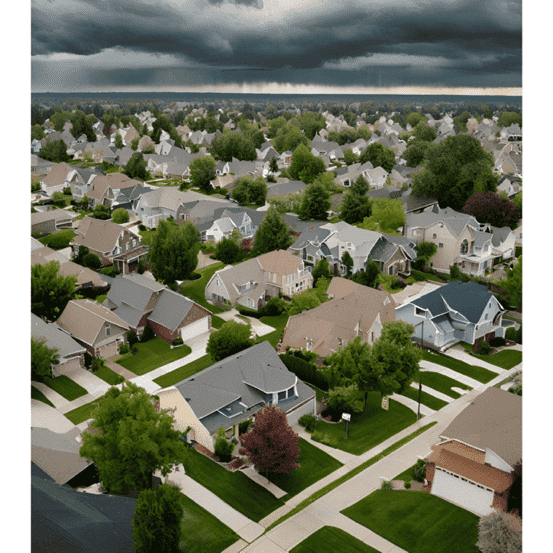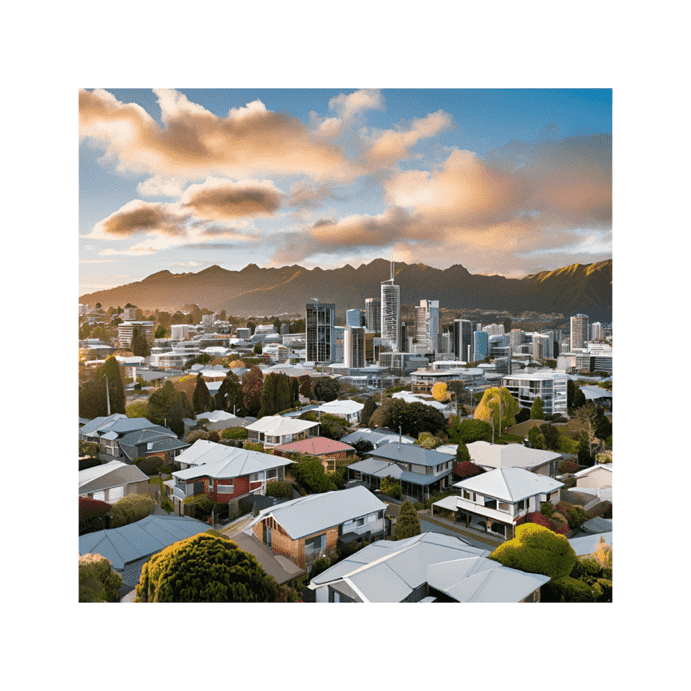New Zealand Real Estate Market: Prices Rebound in September
After months of decline, New Zealand real estate prices rose to $823,550 in September, marking a significant shift in the real estate market.
In a surprising turn of events, the New Zealand real estate market has experienced a notable resurgence this September, following a prolonged period of consecutive declines over the past five months. According to the latest Property Price Index released by Trade Me, the national average asking price for properties has ascended to $823,550, marking a modest increase of 0.6 percent from August. This uptick signifies the first month-on-month rise since March, igniting a glimmer of hope among homeowners and prospective buyers alike.
The regional breakdown reveals that the West Coast led the charge with a commendable 3.1 percent increase month-on-month, closely followed by Northland at 2 percent and the Bay of Plenty at 1.9 percent. Auckland, which had previously witnessed its house prices dip below the million-dollar threshold in August for the first time in four years, has made a remarkable recovery, with prices bouncing back from $986,750 to $996,350 in September.
In a broader context, eleven out of the fifteen regions monitored by Trade Me Property recorded an increase in average asking prices in September, a significant rise from the mere five regions that experienced growth in August. However, not all regions basked in the glow of rising prices; Nelson/Tasman led the decline with a decrease of 2.3 percent, bringing the average asking price down to $793,850. Other regions that faced price drops included Taranaki (-2.2% to $631,550), Gisborne (-1.4% to $614,600), and Southland (-1.2% to $491,600).
Focusing on urban centers, Christchurch city has set a new benchmark for one to two-bedroom properties, reaching an impressive average asking price of $549,050 in September, reflecting a 3.4 percent increase compared to the same period last year. Ōtautahi also experienced a surge in the average asking price for units, which rose by 6.1 percent year-on-year to $471,150.
Interestingly, a stark contrast emerges when examining the New Zealand real estate market for five or more bedroom properties in Auckland and Wellington. While Auckland showcases robust growth with a 7.2 percent year-on-year increase in average asking prices for larger homes, Wellington finds itself in the opposite predicament, suffering a significant decline of 17.5 percent for properties of comparable size. The disparity in pricing is striking; in Auckland, the average asking price for a five-plus bedroom house hovers near a million dollars more than its Wellington counterpart.
On the supply side, the nation’s housing inventory remains robust, having increased by 23 percent year-on-year and 1.0 percent since August. Gisborne has emerged as the frontrunner in terms of available properties, boasting a staggering 64 percent increase compared to September 2023. Wellington and Otago also demonstrated substantial supply growth, with increases of 44 percent and 35 percent, respectively.
While interest in properties has cooled slightly between August and September, with a decrease of 2.0 percent, it still remains a remarkable 17 percent higher than the same time last year. This year-on-year demand has surged particularly in Gisborne (+35%), Auckland (+24%), and Hawke’s Bay (+22%), suggesting that despite fluctuations, the appetite for property remains insatiable.
New Zealand Real Estate Market: Prices Rebound in September
Greece: Europe’s Fourth Cheapest Real Estate Market
Greece: Europe’s Fourth Cheapest Real Estate Market
Explore why Greece stands out as one of Europe’s most economical real estate markets, attracting savvy investors seeking value and opportunity.

Surge in Scottish Home Sales: UK Real Estate Update
Surge in Scottish Home Sales: UK Real Estate Update
Scottish home sales and enquiries surged in October, with a third of surveyors reporting the fastest growth in years, signaling a vibrant market.

Spain: A Leading Market in European Real Estate
Spain: A Leading Market in European Real Estate
Explore how Spain is becoming one of Europe's most promising real estate markets, excelling in retail, logistics, and hotel sectors for strategic growth.

Greece Real Estate Market: Rise of Serviced Apartments
Greece Real Estate Market: Rise of Serviced Apartments
Explore the growing demand for serviced apartments in central Athens, where integrated hospitality services attract savvy investors in the Greece real estate market.

Home Prices Hit by Climate Change, J.P. Morgan Warns
Home Prices Hit by Climate Change, J.P. Morgan Warns
J.P. Morgan analysts reveal a negative link between climate risk and home price appreciation. Explore the emerging trends and their impact.


